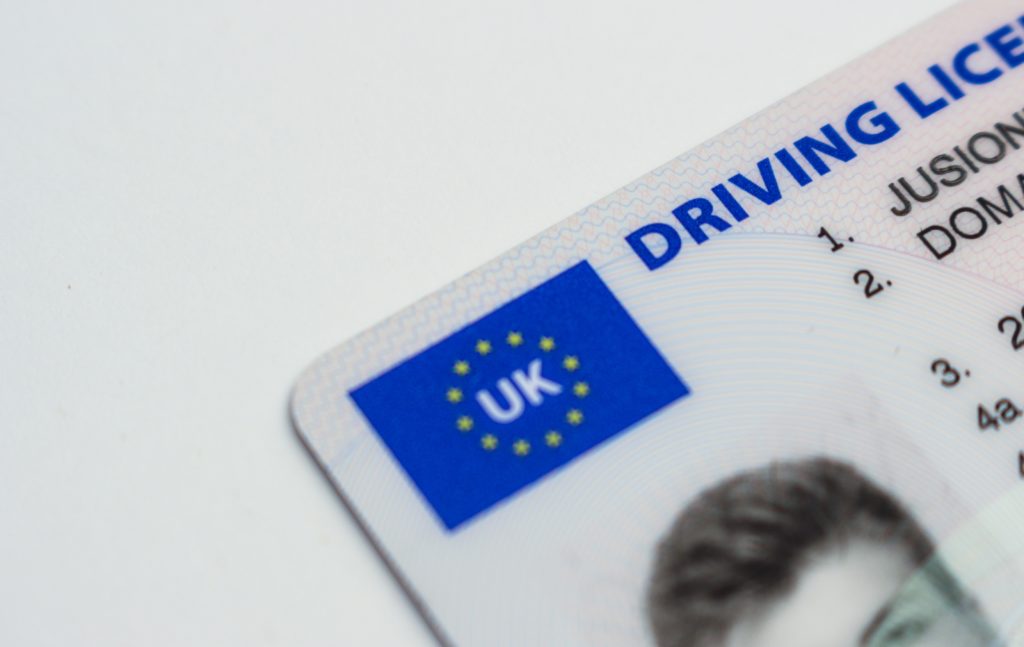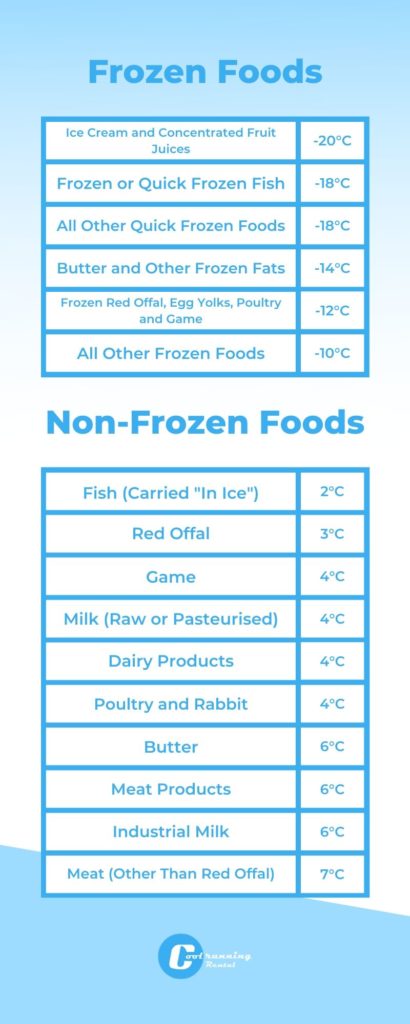As the COVID-19 lockdown begins to draw down, many small businesses are re-opening and will soon be distributing their goods as we struggle back towards normality. Unfortunately not everyone is re-opening at exactly the same time meaning some of the services that they used to rely on may not yet be available, or in a bid to streamline the company they may be choosing to do without altogether.
One of these services is transport for their perishable goods, specifically food. Whether it be refrigerated transport services being tied up by larger retailers or the business simply deciding to do it themselves, we predict that as businesses reopen the need for fridge vans will increase exponentially with many people renting their own for the first time.
Understandably these new entrants to the industry will have lots of questions about hiring a van, and we’re here to answer them.
Hiring a Van
This is one of the key areas that many people have limited understanding of, despite it being the first hurdle you will have to overcome. One of the first questions we are asked is “do I need a van license to hire from you?”, and the simple answer to this is: no.

Anyone in the UK holding a valid cat. B (car) driver’s license can drive a wide array of smaller vans as long as they do not exceed 3,500Kg in maximum weight with no extra training required. This is ideal for many smaller businesses out there that do not need an extra large capacity to transport their goods.
However, if you have held your UK license since before 1997 then you might actually be licensed to drive larger vehicles up to 7,500Kg. As the law changed at the end of 1996 so did the rules on what was covered under the standard cat. B, but those with older licenses still retain the right to drive whatever is listed on the back of their cards. It isn’t safe to assume you have these licenses however as the DVLA remove them if you send your license back to them for whatever reason, so before you get behind the wheel of anything over 3.5 tonnes make sure you have the proper permissions to do so
Trailers also come under this exemption for older licenses, as pre ‘97 cards have the permissions to tow large trailers under what would become the cat. B+E regulations. But again, just because your license is old doesn’t mean you automatically have the right to drive these vehicles, so make extra sure before setting off on public roads.
Finally while many may not realise it, there is an age restriction on hiring any road vehicle in the UK. If you’re under 21 hard luck, you won’t be eligible to hire any refrigerated vans. If you’re over 21 then the entire world of vehicle hire lies open before you, however many vehicle leasing companies will continue to charge you a young persons surcharge until you’re 25. The reason for this is that statistically this is the age where you are most likely to have a serious accident behind the wheel and so the leasing company is just protecting their property.
Considerations for Employers and Employees
Before transporting any food products in your newly hired van there are quite a few practises and considerations that must be made by both the employer (the entity in charge of the business/goods being transported) and the employee (in this case, the driver).
Employer
Before Transporting
As you might expect there are expectations made of anyone who is transporting food for human consumption, and meeting these expectations starts with the employer.
Firstly the employer must devise a plan for how the food travels encompassing not only the actual act of transport, but the hygiene and safety measures around it. To begin with the employer must assess and identify the risks in the transport process that could lead to a breakdown in food hygiene. These might include a loss of refrigeration in the van, an employee sneezing on the product or any number of other outside factors.
Once these risks have been identified, the employer needs to decide when the key control points are to evaluate whether these risks have happened or not. This can be at any stage, but we would recommend doing checks each time the vehicle is opened and closed, and after any lengthy journey at the very least.
Now that key control points have been established plans need to be put in place to inform employees what to do if they identify a hazard. These plans to counter hazards are very important in ensuring that your precious cargo remains fit for human consumption.
Finally it is very important that all of the above are well documented in case of an emergency. Should the worst happen and your products cause concern with a member of the public, these detailed plans will show the measures you have taken to ensure the integrity of the product.
During Transport
If you have never hired a refrigerated van before then it is important to note that as an employer it also falls to you to ensure that the vehicles you use are kept clean before, during and after transport. Regular inspections of your vehicles are necessary to ensure that standards are kept high.
It is also important that your employees follow these same standards themselves, and so ensuring that they have clean clothes on and maintain a high level of personal hygiene is vital.
After/Between Transporting
Many businesses renting a fridge van for the first time are familiar with cleanliness standards in the workplace, especially those whose business lies in food. What they often don’t realise however is that these same standards extend to any vehicle that you use to transport the food.
When garaging your vehicle overnight you must ensure that where you are keeping the vehicle is clean, free of pests, has ample ventilation and drainage.
It is also key that those who will be using the vehicle have clean lavatories and plenty of handwashing facilities away from the vehicle. All these together prevent any risk of an outside contaminant entering the food storage area of the vehicle between cleaning cycles.

Employees
Before Transport
In this case, we are using the term “employee” to refer to anybody who will be operating the vehicle on a regular basis. For many small businesses this will likely be the same person who is also filling out the “employer” position, but this is nothing to worry about.
The employee has the task of ensuring that their refrigerated vehicle remains clean and hygienic throughout the transport process. It is their responsibility to ensure that the clothing they are wearing is fresh and clean, and that they wash their hands on a regular basis. This has never been so important as it is now with us battling the ongoing COVID19 infection, but this should also make it much easier to remember to do.
On a similar note, it is of vital importance that any employee using the vehicle should report any feeling of illness to their employer as soon as possible. Outside of the obvious coronavirus implications this is a basic hygienic standard, as you don’t want to be passing any infection or illness on to food for human consumption.
During Transport
There are a whole host of responsibilities for employees to be mindful of while transporting food in a refrigerated van including driving legally, lifting correctly and the simpler matter of making sure you deliver the correct order! One of the key concerns that new renters may not understand however is the importance of recording the refrigerated van’s internal temperature.
Many different foodstuffs are actually incredibly delicate when it comes to temperature, and so there are strict guidelines for ensuring that what you pass on to your customer is safe to consume.
One of these guidelines states that precision thermometers must be fitted to a refrigerated van in order to accurately read the internal temperatures. This is something that you the customer don’t have to worry about with Cool Running Rental. All of our vans are fitted with this specialist technology, and it is regularly maintained by us to ensure that you get the accurate readings you need.
These records should be taken at regular intervals, maybe every hour or maybe every time your vehicle stops to make a delivery, depending on your circumstances. In either case, these records must clearly show the dates, times and temperatures of the internal storage compartments, and must be kept on file for up to 12 months available for request by Environmental Health offices.
Temperatures for Transporting Different Foods
Knowing exactly what temperatures to transport food at largely depends on the individual product, but if you don’t have this information then you may find yourself feeling a little stuck.
Luckily for you we understand the struggle, and so have put together a little cheat-sheet of all the recommended temperatures that different foods should be kept at throughout the transport process.

Recording temperatures is important not only to preserve non-frozen foods, but also to protect the type of ice crystals found in frozen foods. Individually Quick Frozen foods have much smaller crystals of ice inside them which helps to preserve the moisture of the food. If these foods are allowed to thaw then are slowly refrozen by the refrigeration unit the new ice crystals formed will be larger and will damage the products.
Maintaining your newly rented van
While everyone renting a van has to hold a valid driving license, this may be the first time you’ve ever had a vehicle for commercial use and so you have to understand the maintenance that is required for a vehicle doing a large amount of miles.
We actually have an entire other blog post on this subject: Top tips for maintaining your refrigerated van which we urge anyone not familiar with maintaining a vehicle to read.
Where can you hire a refrigerated van?
Well this is the easiest thing for us to help you with. Cool Running Rental is one of the UK’s premier refrigerated vehicle suppliers with over 90 years experience in the vehicle hire industry. Our vans are all serviced and valeted in house and with nationwide service we can help anyone in need of a refrigerated vehicle for hire.
Our team are always happy to help new customers and with our flexible leasing we can help you find the right package for your needs. Get in touch today for your free quote!
Sources: https://app.croneri.co.uk/topics/carriage-foodstuffs/indepth




